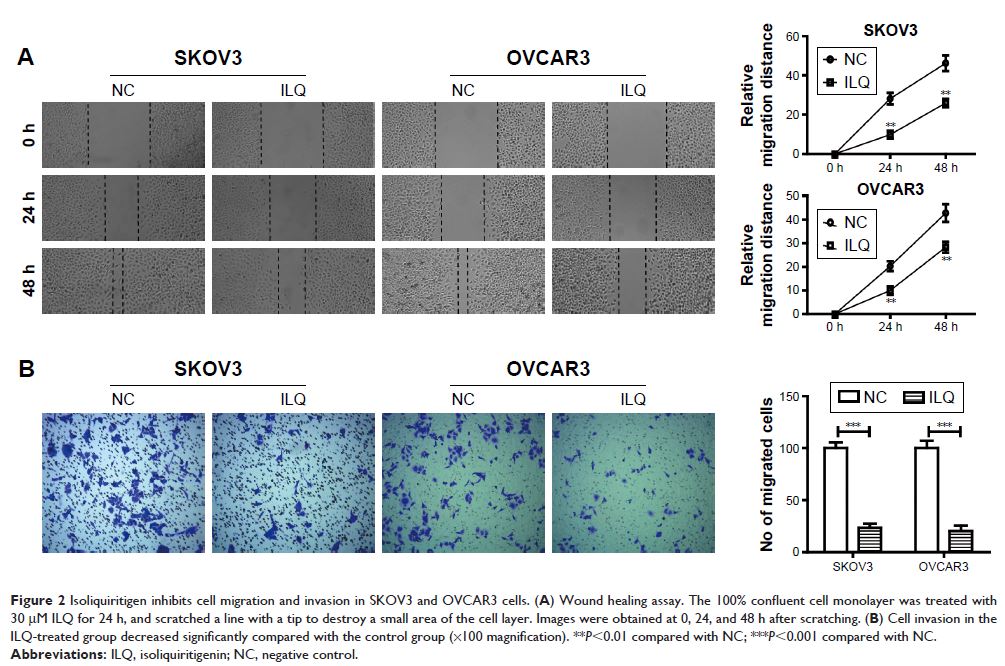108985
论文已发表
注册即可获取德孚的最新动态
IF 收录期刊
- 3.4 Breast Cancer (Dove Med Press)
- 3.2 Clin Epidemiol
- 2.6 Cancer Manag Res
- 2.9 Infect Drug Resist
- 3.7 Clin Interv Aging
- 5.1 Drug Des Dev Ther
- 3.1 Int J Chronic Obstr
- 6.6 Int J Nanomed
- 2.6 Int J Women's Health
- 2.9 Neuropsych Dis Treat
- 2.8 OncoTargets Ther
- 2.0 Patient Prefer Adher
- 2.2 Ther Clin Risk Manag
- 2.5 J Pain Res
- 3.0 Diabet Metab Synd Ob
- 3.2 Psychol Res Behav Ma
- 3.4 Nat Sci Sleep
- 1.8 Pharmgenomics Pers Med
- 2.0 Risk Manag Healthc Policy
- 4.1 J Inflamm Res
- 2.0 Int J Gen Med
- 3.4 J Hepatocell Carcinoma
- 3.0 J Asthma Allergy
- 2.2 Clin Cosmet Investig Dermatol
- 2.4 J Multidiscip Healthc

异甘草素对卵巢癌细胞的作用
Authors Li N, Yang L, Deng XN, Sun YN
Received 16 August 2017
Accepted for publication 12 February 2018
Published 22 March 2018 Volume 2018:11 Pages 1633—1642
DOI https://doi.org/10.2147/OTT.S149295
Checked for plagiarism Yes
Review by Single-blind
Peer reviewers approved by Dr Colin Mak
Peer reviewer comments 2
Editor who approved publication: Dr William Cho
Background: Ovarian cancer is one of the most fatal gynecologic malignancies, with
most patients diagnosed at the late stage due to insidious onset and lack of
early onset specific symptoms. Previous studies have implied that
isoliquiritigenin (ILQ) is a promising chemopreventive agent against oral
cancer.
Aim: This study aimed to investigate effects of ILQ and elucidate the related
mechanism.
Materials and
methods: Ovarian cancer cell lines, SKOV3 and
OVCAR3, were treated with various concentrations of ILQ to detect the
dose-dependent effects of ILQ and select the suitable concentration. CCK8 assay
and clone formation efficiency assays were used to detect viability and
proliferation. The cell migration, invasion, and apoptosis were evaluated by
wound healing assays, transwell, and flow cytometry assays. The expression of
apoptosis-related proteins (Caspase-3, Caspase3-p17, Bcl-2, Bax, and Bim) and
related-signaling pathway proteins were also detected by Western blot.
Results: It was observed that the treatment of ILQ inhibited the survival and
proliferation of SKOV3 and OVCAR3 cells. ILQ treatment inhibited migration and
invasion, and induced apoptosis in SKOV3 and OVCAR3 cells. Also, the ILQ
treatment increased the Bax/Bcl-2 ratio in SKOV3 and OVCAR3 cells, suggesting
that a mitochondrial apoptotic pathway was triggered. It was also observed
that, after treated with ILQ, the phosphorylated form of Akt and mTOR decreased
and the expression of GSK3β increased, while P70/S6K decreased. ILQ treatment
also decreased the expression of Wnt3a and, therefore, caused the decrease of
phosphorylated ERK. ILQ also suppressed the PI3K/Akt/mTOR pathway by reduced
the expression level of p-Akt, p-mTOR, P70/S6K and Cyclin D1 in Ishikawa and
ES-2 cells.
Conclusion: The data suggested that ILQ inhibited viability, proliferation,
and invasion, and induced apoptosis of SKOV3 and OVCAR3 cells through the
PI3K/Akt/mTOR pathway. Together, the data revealed that ILQ treatment may be
used as a novel strategy for ovarian cancer therapy.
Keywords: isoliquiritigenin (ILQ), ovarian cancer, SKOV3, OVCAR3, apoptosis,
PI3K/Akt/mTOR pathway
